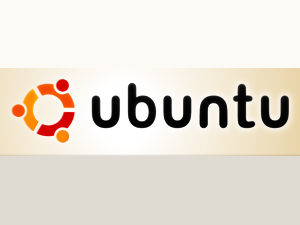Ubuntu 7.04 Linux released
Enthusiasts and enterprise users snap up new release, temporarily derailing company's web presence

Sign up today and you will receive a free copy of our Future Focus 2025 report - the leading guidance on AI, cybersecurity and other IT challenges as per 700+ senior executives
You are now subscribed
Your newsletter sign-up was successful
Canonical's Ubuntu distribution of Linux has reached another milestone with the 7.04 release, the latest in the company's usual six-month refresh cycle. This release lacks some of the desktop bells and whistles which had originally been envisioned early in its development cycle, but does include an update to the Linux kernel and GNOME desktop environment, along with improvements in multimedia codec installation. The release is also the first to feature a Windows migration application.
Response to the release overwhelmed the Canonical servers for some time, taking down the site and forcing Canonical to replace it with a stub referring visitors to use mirror sites. Precise figures were unavailable but a Canonical spokesperson confirmed that demand was "substantially more" than earlier editions of the operating system.
Unlike other entrenched Linux distributions with commercial backing, Canonical has yet to roll out a heavyweight services organization. The company continues to walk a line between providing an appealing and comparatively accessible desktop environment for everyday computing users, with enough power and configurability for the IT shop to take it as seriously as other Linux distributions.
Ubuntu is actually four different yet related distributions, each available in both a client and a server implementation. Server editions come with additional infrastructure installed, including a complete preconfigured LAMP (Linux/Apache/MySQL/PHP) stack. The alternative desktop derivatives provide different desktop environments tailored to user preferences or lower-end machines, and a "classroom" focused variant called Edubuntu.
Canonical indicates that it is on track for its next release in October. 7.04 and the 7.10 successor are likely to be on the company's 18-month free support plan. The company has so far only released one "long term support" edition, last year's 6.06 release, which promises three and five years of bug and security fixes on client and server, respectively.
Sign up today and you will receive a free copy of our Future Focus 2025 report - the leading guidance on AI, cybersecurity and other IT challenges as per 700+ senior executives
-
 Stop treating agentic AI projects like traditional software
Stop treating agentic AI projects like traditional softwareAnalysis Designing and building agents is one thing, but testing and governance is crucial to success
-
 PayPal appoints HP’s Enrique Lores in surprise CEO shake-up
PayPal appoints HP’s Enrique Lores in surprise CEO shake-upNews The veteran tech executive will lead the payments giant into its next growth phase amid mounting industry challenges